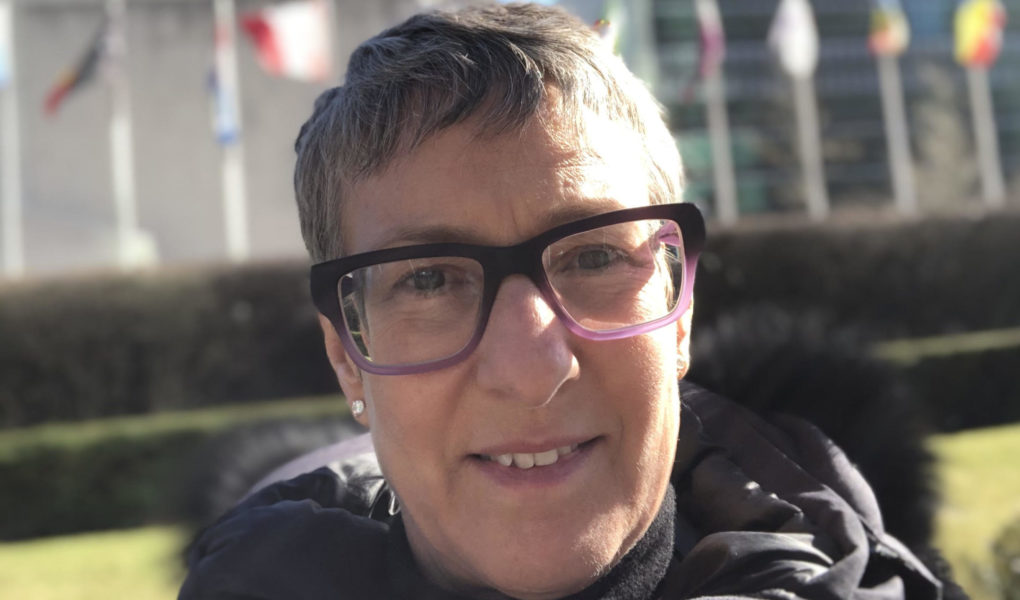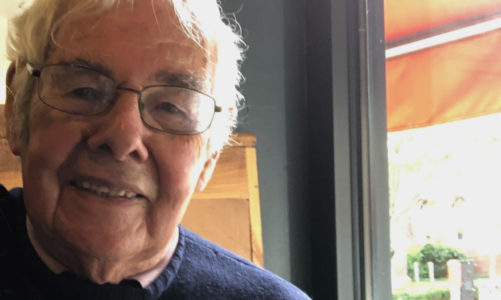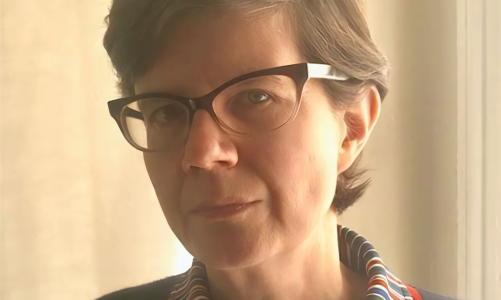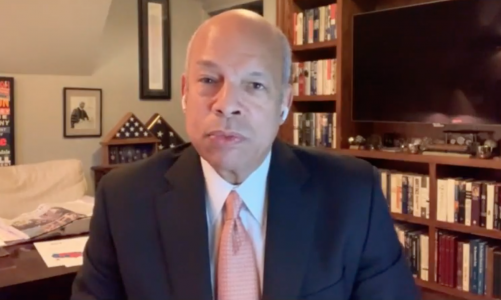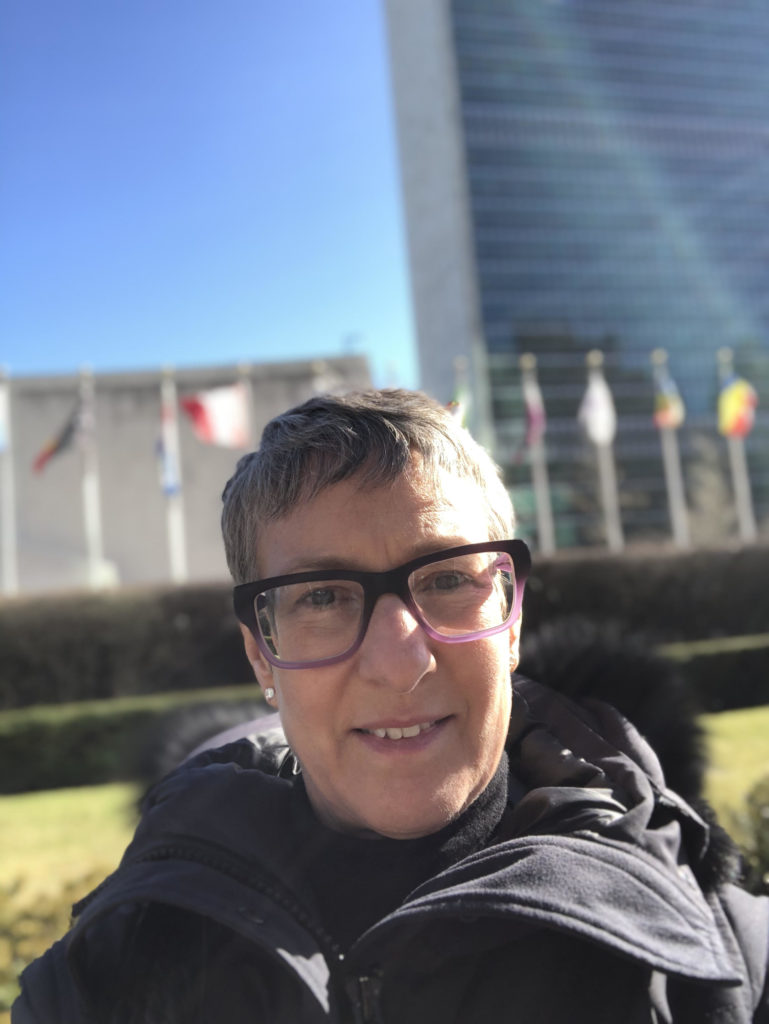
Holly Carter is the Founder and Executive Director of BYkids, a non-profit organization pairing master filmmakers, including Albert Maysles and Joyce Chopra, with youth from around the world to create short documentaries that educate Americans about globally relevant issues. She began her career as a writer and editor at The New York Times where she was nominated for a Pulitzer Prize. She was awarded a Henry Luce scholarship and moved to South Korea where she reported for Sisa Weekly Magazine. She went on to produce the critically acclaimed documentary Margaret Sanger, co-found North Carolina’s Full Frame Film Festival, produce the PBS series Media Matters, and serve as the Executive Director of the Global Film Initiative before ultimately founding BYkids. BYkids films will enter their third season on public television in April 2021.
Amelia Spalter: Kids are often only incorporated into journalism for cute quotes and human-interest stories. When did you realize that you wanted to make films not about kids, but created BY kids?
Holly Carter: It’s parallel tracks of thinking. One track is around seeing journalists swoop into a country, where they didn’t speak the language and certainly didn’t understand the culture, and extract a story. I have come to call that “colonial journalism” and I find it relatively dangerous. So, I began, in my quiet moments, to think about, “How do you get closer to the primary source? How do you tell issues through the voices and the eyes of people for whom these issues are real and part of their lived experience?” I had a friend who was giving cameras to people in the community so they could be their own journalists, and I loved that idea. So, that was one track of my mind.
The other track was highly personal, which was that I was raising these two young kids. My husband and I had gone to a dinner party with a bunch of Pulitzer Prize-winning journalists. It occurred to us, on the way home, that everybody spent most of the dinner bragging about their accomplishments. It was not all that interesting. I don’t really love hearing people brag. I like people rolling up their sleeves and saying, “Let’s use our collective talent to make some shit happen.”
I don’t remember exactly what had gone on that day, but there was some sort of big news. We got home and our kids, who were probably eight and five years old at that point, were sitting on the floor. I plopped down, as I always do, and asked, “Hey guys, what’s going on?” Whatever had happened in the news that day, the way the kids told it was so honest and so without politics or ego. The “ah-ha moment” was that kids are actually the best reporters. They’re the ones that see, and then report, the truth. Their ability to smell hypocrisy is awesome. They don’t like braggarts. Kids just have a natural ability to reflect the truth. That’s what they do. That, to me, is the definition of a great reporter. Here I was, sitting on the floor with these two kids, realizing that they have the ability to deliver fact and circumstance in a way that is completely disarming and honest. I was like, “Bingo! We got it.”
No one would have guessed you’d end up founding BYkids based on your first piece of journalism. How did you go from spending months on a single article about birdwatching for The New York Times business section to being an independent social issue filmmaker producing multiple films a year?
I’ll give you two answers. First, how the birdwatching story came to be. There were a bunch of upstarts—young and ambitious reporters who all want to be Executive Editor of The New York Times—standing around. One of the business editors came up with a one-page press release saying, ‘Birdwatching has just become America’s top pastime. Who wants to do a story?” The thing about me that has gotten me into immense trouble and made my life so exciting, is that I always put my hand up and say, “I’ll do it,” then figure out the logistics later. In character, I’m like, “Okay, birdwatching. I love it.” All the other upstarts were like, “Ew, boring.” “Birdwatching is for old people.” So, then I set out to become the world expert on birdwatching. When I started the article, I knew nothing about birds or birdwatching.
One of my mentors, the marketing guru Seth Godin, would say, “You just have to ship things out. It doesn’t have to be perfect.” But I was still caught up in, “No, I have to know everything about birdwatching.” Hence the three months it took. When I finally finished the piece, one of the business editors said, “Oh, this is a lovely story. We’ll put it on the front page of D1,” which was the business section in those days. But other things were happening in the world, there was a lot of financial news, so it kept rolling over. They’re like, “Okay. Birding for tomorrow.” ‘Birding for the next day.’ Finally, one of the really smart editors came and said, ‘Hey, let’s do a news hook with the first day of spring. Let’s pitch this story, not as a financial story, but as a page-one story.”
Now, I’m a kid with a bunch of upstarts around me, who are all jealous and competitive. … So, the best moment was when Fred Andrews, who was the business editor, brought it back. He was a big guy, and he would announce what was on page one very loudly. He screamed so the whole newsroom could hear him, “Birding on one!” I was like, “Okay. This is the highlight of my life.” To answer your question, getting better at working on deadlines, so that it didn’t take me three months to work on things, was a valuable skill. I don’t mind iterating till the very last minute. So I became much more interested in that daily-journalism kind of adrenalin high. I got much more interested in long-tailed systemic stories, which is what eventually led me to BYkids.
It was messy and collaborate getting there, and then impactful to go forward. It took me a while to figure out that those pieces of a career. At one point I went to my mentor, Seth, in a panic about my career and said, “It looks like I have ADD. I’ve been an Outward Bound instructor, I’ve been a newspaper editor, this isn’t [building to anything.]” He said, “Life is like a pearl necklace, and every one of the experiences you’ve had is an individual pearl. With enough of those, eventually and maybe sooner than you realize, they’re all going to string together and make this beautiful necklace, and it will all make sense. One thing will lead to another.” Particularly for your audience of college students, there’s a rush when everyone’s trying to get into the Ivy League and be deep, and expert and good all the time. But just keep stringing the necklace with things. Sometimesin life, weeding out the things you don’t like is almost as important as figuring out what you do like. It took me a while.
Your experience across multiple mediums, eras, and subjects within cutting-edge journalism lends you a one-of-a-kind perspective on reporting in this increasingly divisive time. Should journalists be working to achieve neutrality, or go the opposite direction of picking the side that appears to be right and then openly advocating their position?
I’d argue for a third option, which is an educated knowledge about things. As Ken Burns says, “There are no facts in life. There is no such thing as fact. There’s something that happens and then there are a million interpretations of what happened.” That’s what we’ve lost in this country, and maybe even the world, though I hope it’s only lost for the moment. We have lost our ability to see things from any other perspective. That is wickedly dangerous.
What BYkids allows us to do is what Ken Burns does with his films. He says very clearly, “’The truth’ means when you make a film you need to have at least three different people [tell the same story.]” You know, ‘Okay. Well, this thing happened, and I was looking south, and I saw X, Y and Z.’ Because the person looking from the north had a completely different experience of the same event. You need to figure out ways to tell truths with a number of perspectives so that the person who is digesting whatever the truth is can make their own decision. We’ve lost all of that.
MSNBC and Fox News tell every truth as a one-perspective thing. We’re probably teaching our kids the same way. That tears at the fabric of democracy. That’s what BYkids is trying to push against. We’re trying to say, “When we’re talking about this issue—whether it’s climate change, or the ravages of AIDS, or juvenile justice reform—here is one perspective that desperately needs to be considered in the national dialogue when looking for solutions.”
If we only look for solutions to adhere to one perspective, we’re doomed. Doomed. That’s called autocracy, and I don’t want to live there. Neutrality doesn’t exist. I think I learned that in journalism. That the idea of objectivity is, in itself, subjective and impossible, because everybody has a point of view. I’m not saying our kids are the experts. What is incredibly liberating about what we’re doing is, again, we are offering one perspective. In my mind it is one of the more important perspectives, because it’s purely honest, it’s pre-political, and it’s pre-ego, as I said. So, their films have an incredible place in letting the citizenry make good decisions in an informed way.
You spoke earlier about kids being uniquely pure reporters, but what about consumers? When you screen BYkids films, do you ever notice contrasting reactions between the adults and the children in the room?
The common thread when the films are screened and we’re able to talk about the issues afterwards is someone, be it an adult or a kid, seeing something about their own life in the film that they can relate to in a very emotional way. The best example I can give is, back in the day when we did live events, we would take Poet Against Prejudice out to numerous schools. My favorite day was out in Bergen County. The Bergen County Department of Education had teamed up, very smartly, with the police department and had invited us in for three days, back-to-back, at local high schools. We were seeing thousands and thousands of high school kids every day. They were getting to meet Faiza, who made the film, talking about her experience moving from Yemen to Brooklyn. Her experience around not just immigration, but about Islamophobia and, even more broadly, bullying.
The first day of screening, the school where we were, in Teaneck, New Jersey, had a panel that included Faiza and me. Another person on the panel was one of the guidance counselors at this big public high school. After everybody on the panel was introduced, he took the microphone to speak and said, ‘When I previewed this film a few days ago, I just had tears streaming down my face. Those of you that see me around every day probably don’t know that my family came here from the Dominican Republic when I was about Faiza’s age, in middle school. I didn’t speak English. I have scars that are both inside and outside.” He showed this horrible scar on his face. He said it was from another kid who “didn’t like the fact that I didn’t speak English and didn’t understand what culture I was from.” [He went on to explain,] “I sat there, in my office, watching Faiza’s story, and it broke open something in me that I’ve carried, this pain that I’ve carried and never shared with anybody. The internal scars.” That’s how it lands, very often, on the adults in the room. But there’s really no difference between kids and adults, because the one thing all adults have in common is that they used to be a kid.
That same day [in Teaneck], we’re up on a podium and behind a desk. It’s all very professional. These kids flood, flood the stage—in front of their friends, by the way. I don’t remember being so bold in high school as to get up on a stage in order to be proactive about anything. I was standing on stage next to the police chief and when I turned around Faiza was standing with about eight kids around her, and everybody was in tears. I’m a naughty journalist, I pulled out my cell phone, put it on video, walked over and said, ‘I’m really sorry to butt in on this emotional moment, but what are you guys talking about?” Each one of these kids, one was from Taiwan, one was from Uzbekistan, one was from somewhere in Russia, they each said, “I watched Faiza’s film and I realized, for the first time in my life, how much my parents had gone through to bring me to this country to have a better life and to get a good education. I’m just so grateful to have this school. I’m so overwhelmed with gratitude to my parents.”
How can people who are inspired by this work support BYkids despite the myriad physical and economic challenges imposed by COVID-19?
We make our films through the generosity of donors of all levels. Donations are always welcome. If you like what we do, help us find one place to screen and discuss. Everybody’s got an alma mater of some kind. Elementary, middle, high school, college, grad school, temple, church, online theater group, who knows? Everybody’s got community. If this is interesting to you, introducing our films to your community, connection to a place that might like to screen our films would be the most helpful thing.
How has your upcoming production cycle been impacted by the pandemic?
I am very proud and delighted that the universe delivered all our shooting for season three before the pandemic set in. We had all the footage, everything we needed. We’ve spent all this pandemic time working remotely to color-correct, film-correct, edit. We are proud to say that we’re delivering to public television on time, planning to broadcast season three in April of 2021. There’s an amazing film about resurgent Jewish life in Germany in the face of worldwide antisemitism. There’s a film done in Bhutan about the impact of globalism. There’s a film about living with cerebral palsy.
The fourth film is by a Native American 17-year-old who talks about her pride in her culture, and it really is an invitation to walk in her community. [The kids] are all incredible. It’s such a great lineup of stories. Having said that, we’re now off to the races starting to think about what films we will do for Season Four, when we’re able to start shooting again. So, we’re thinking about a film set in a particular community in El Salvador, where many people are forced to leave to come to America, so that’s a film about the immigration process. We’re looking to do a film about, basically, period poverty. We’re looking at India, which has a huge environmental issue with sanitary pads and where they are dealing with all kinds of issues around reproductive health and menstrual issues. We’re going to do a film around gun violence in Chicago. We’re also planning a film about modern slavery, particularly sex trafficking, in the Philippines.
Your list of themes is remarkably varied and the children in the films are often located in obscure, isolated parts of the world. Do you start with the social topic, the geographic region, the child themselves, or other criteria entirely? How do you find their stories?
There have been a couple of cases where our filmmakers and/or their story just fell in our laps. But the process normally goes like this. The Board and I decide on the biggest global issues that we should be thinking about: climate change, immigration, whatever else. From that topic, we began to dig in with this group we have called a “Story Selection Committee” that’s populated by people all over the world, from educators to ambassadors to nonprofit leaders. We say, “Okay. If we want to do a story about forced child marriage, where would be interesting and offbeat, somewhere that people haven’t been reading a ton about, or at all?” Then once we’ve chosen a region and/or a country, we choose a nonprofit to partner with and help us collect a group of kids, from whom we can pick our one filmmaker. Then from our roster of willing and able film mentors, we pick somebody who maybe has language capabilities, has the months to spend with the kid, and off we go.
So it really starts with the issue. We then go to the country. We then go to the nonprofit partner, and then we send off the mentor for their time together with the kid. That works. It works really well. When I first started this I was, like, “How are we going to find story ideas?” That is so far from our problem. There are a million stories in this world and there are certainly a million and one really big topics that deserve some sunlight. We’ve got plenty more up our sleeves.
*This interview has been edited for length and clarity.

